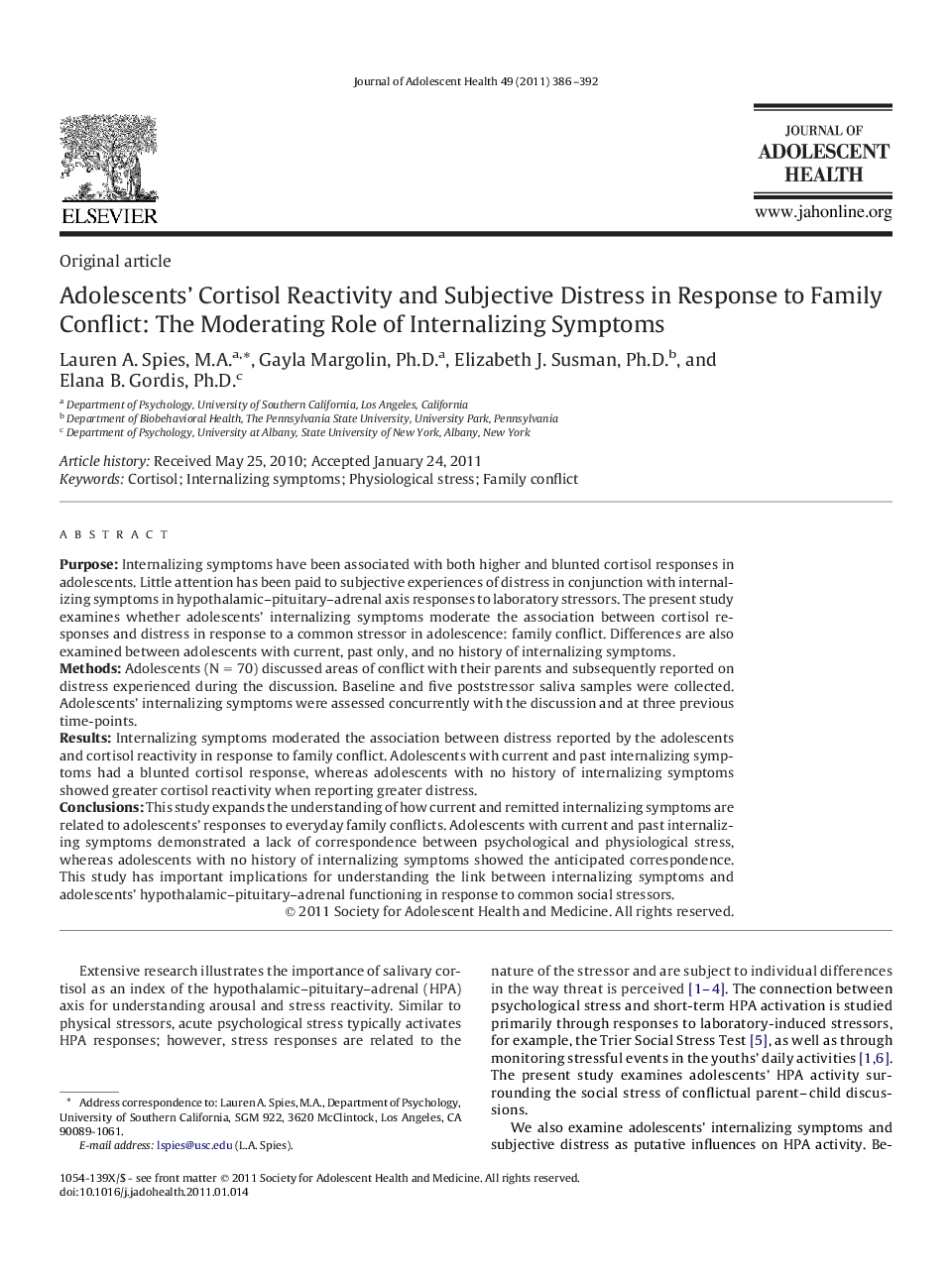| Article ID | Journal | Published Year | Pages | File Type |
|---|---|---|---|---|
| 1079064 | Journal of Adolescent Health | 2011 | 7 Pages |
PurposeInternalizing symptoms have been associated with both higher and blunted cortisol responses in adolescents. Little attention has been paid to subjective experiences of distress in conjunction with internalizing symptoms in hypothalamic–pituitary–adrenal axis responses to laboratory stressors. The present study examines whether adolescents' internalizing symptoms moderate the association between cortisol responses and distress in response to a common stressor in adolescence: family conflict. Differences are also examined between adolescents with current, past only, and no history of internalizing symptoms.MethodsAdolescents (N = 70) discussed areas of conflict with their parents and subsequently reported on distress experienced during the discussion. Baseline and five poststressor saliva samples were collected. Adolescents' internalizing symptoms were assessed concurrently with the discussion and at three previous time-points.ResultsInternalizing symptoms moderated the association between distress reported by the adolescents and cortisol reactivity in response to family conflict. Adolescents with current and past internalizing symptoms had a blunted cortisol response, whereas adolescents with no history of internalizing symptoms showed greater cortisol reactivity when reporting greater distress.ConclusionsThis study expands the understanding of how current and remitted internalizing symptoms are related to adolescents' responses to everyday family conflicts. Adolescents with current and past internalizing symptoms demonstrated a lack of correspondence between psychological and physiological stress, whereas adolescents with no history of internalizing symptoms showed the anticipated correspondence. This study has important implications for understanding the link between internalizing symptoms and adolescents' hypothalamic–pituitary–adrenal functioning in response to common social stressors.
